History occasionally provides lessons of uncanny application for comprehending current events. Author Benn Steil shares such insights in his new book, The World That Wasn’t: Henry Wallace and The Fate of The American Century. Columnist George Will aptly calls it “timely, riveting.”
In the summer of 1944, President Franklin D. Roosevelt exhibited manifest physical decline. Heading into the Democratic National Convention in Chicago, FDR arranged for the removal of his hand-picked vice president, Henry Wallace. Wallace was a brilliant individual who excelled in several fields. Unfortunately, his political judgment was erratic. Wallace harbored great and undue sympathy for the Soviet Union of Joseph Stalin. Many were queasy amid the prospect of a Wallace presidency leading the final phase of the ongoing Second World War.
Wallace was replaced by a respected yet little known senator from Missouri, Harry S. Truman. After FDR’s death in April 1945, President Truman would help forge the postwar American-led world order, standing against the threat posed by Stalin’s expansion.
Wallace would challenge Truman as the presidential nominee of the Progressive Party in 1948. Though his accomplishments in other fields would continue, his national political presence ended.
Benn Steil is an award-winning writer in the fields of finance, history, and biography. He is a senior fellow and director of international economics at the prestigious Council on Foreign Relations in New York.
In this episode of the Serve to Lead podcast, Steil explains the ongoing significance of Henry Wallace to our understanding of a hinge point of history, with parallels to our current moment.
Publisher’s Summary
From the acclaimed economist-historian and author of The Marshall Plan comes a dramatic and powerful new perspective on the political career of Henry Wallace—a perspective that will forever change how we view the making of US and Soviet foreign policy at the dawn of the Cold War.
Henry Wallace is the most important, and certainly the most fascinating, almost-president in American history. As FDR’s third-term vice president, and a hero to many progressives, he lost his place on the 1944 Democratic ticket in a wild open convention, as a result of which Harry Truman became president on FDR’s death. Books, films, and even plays have since portrayed the circumstances surrounding Wallace’s defeat as corrupt, and the results catastrophic. Filmmaker Oliver Stone, among others, has claimed that Wallace’s loss ushered in four decades of devastating and unnecessary Cold War.
Now, based on striking new finds from Russian, FBI, and other archives, Benn Steil’s The World That Wasn’t paints a decidedly less heroic portrait of the man, of the events surrounding his fall, and of the world that might have been under his presidency. Though a brilliant geneticist, Henry Wallace was a self-obsessed political figure, blind to the manipulations of aides—many of whom were Soviet agents and assets.
From 1933 to 1949, Wallace undertook a series of remarkable interventions abroad, each aimed at remaking the world order according to his evolving spiritual blueprint. As agriculture secretary, he fell under the spell of Russian mystics, and used the cover of a plant-gathering mission to aid their doomed effort to forge a new theocratic state in Central Asia. As vice president, he toured a Potemkin Siberian continent, guided by undercover Soviet security and intelligence officials who hid labor camps and concealed prisoners. He then wrote a book, together with an American NKGB journalist source, hailing the region’s renaissance under Bolshevik leadership. In China, the Soviets uncovered his private efforts to coax concessions to Moscow from Chiang Kai-shek, fueling their ambitions to dominate Manchuria. Running for president in 1948, he colluded with Stalin to undermine his government’s foreign policy, allowing the dictator to edit his most important election speech. It was not until 1950 that he began to acknowledge his misapprehensions regarding the Kremlin’s aims and conduct.
Meticulously researched and deftly written, The World That Wasn’t is a spellbinding work of political biography and narrative history that will upend how we see the making of the early Cold War.
Critical Acclaim
“American history—and world history—could have turned out very differently if just a few things had gone the other way. Most notably, the U.S. after World War II might have pursued a pro-Soviet foreign policy, consigning Europe to Communist control, if President Franklin Roosevelt had died in the middle of his third term or if the 1944 Democratic National Convention had not dumped Vice President Henry Wallace for Harry Truman. How this counterfactual history came close to happening, and how it was prevented, is the subject of Benn Steil’s definitive account, The World That Wasn’t.” —Wall Street Journal
“A groundbreaking biography . . . Benn Steil comes closer than anyone before him to unraveling the enigma of this visionary hybrid of feeling and fact.” —Richard Norton Smith, Washington Free Beacon
“A rigorously researched and revelatory new Wallace biography.” —New York Journal of Books
“A meticulous biography of Henry Wallace . . . Drawing on new materials from FBI and Soviet Union archives, Steil paints a vivid picture. . . . This is a rewarding dive into the inner workings of mid-century American government.” —Publishers Weekly
“Steil deftly sorts through [the layers of legend] to distinguish truth from fiction. . . . A welcome reconsideration of a much-misunderstood but important figure in American politics.” —Kirkus Reviews
“One of the strangest characteristics of Cold War historiography is the frequency with which Henry Wallace and hagiography have accompanied one another. ‘If only Wallace, and not Truman, had succeeded FDR,’ the argument runs, ‘the Cold War would never have happened.’ No Wallace biographer, until now, has made a serious effort to assess that claim, not only on the basis of the Wallace papers but also documents from ‘the other side’ that the end of the Cold War made available. With The World That Wasn’t, Benn Steil has risen triumphantly to that challenge: his book is equally important for what it tells us about our past, and for what it may imply about our future.” —John Lewis Gaddis, Pulitzer Prize–winning author of George F. Kennan: An American Life
“No-one could be better qualified to write this definitive life of Henry Wallace than Benn Steil, who is steeped in the period and a very considerable scholar. Steil has done a tremendous job stripping away the myths surrounding the New Deal, the Soviet Union, and The Century of the Common Man. Uncovering much brand new evidence, he presents Wallace in a startling new light, and with it the history of America at a crucial moment in world affairs.” —Andrew Roberts, author of Churchill: Walking with Destiny
About Benn Steil
Benn Steil is senior fellow and director of international economics at the Council on Foreign Relations in New York. Prior to his joining the Council in 1999, he was director of the International Economics Programme at the Royal Institute of International Affairs (Chatham House) in London. He came to the Institute in 1992 from a Lloyd’s of London Tercentenary Research Fellowship at Nuffield College, Oxford, where he received his MPhil and DPhil (PhD) in economics. He also holds a BSc in economics summa cum laude from the Wharton School of the University of Pennsylvania.
Dr. Steil has written and spoken widely on international finance, monetary policy, financial markets, and economic and diplomatic history. He has testified before the U.S. House, Senate, and CFTC. His most recent book, The World That Wasn’t: Henry Wallace and the Fate of the American Century, was published in January 2024.
His previous book, The Marshall Plan: Dawn of the Cold War, won the New-York Historical Society’s 2019 Barbara and David Zalaznick Prize for best work on American history, won the American Academy of Diplomacy’s 2018 Douglas Dillon Prize, won the Honorable Mention (runner-up) for the 2019 ASEEES Marshall D. Shulman Prize, was shortlisted for the Duff Cooper Prize, and is ranked number 3 among BookAuthority’s Best Diplomacy Books of All Time. Paul Kennedy in the Wall Street Journal called the book “brilliant,” the New York Times called it “trenchant and timely,” the Financial Times called it “elegant in style and impressive in insights,” and the Christian Science Monitor called it a “gripping, complex, and critically important story that is told with clarity and precision.”
His earlier The Battle of Bretton Woods: John Maynard Keynes, Harry Dexter White, and the Making of a New World Order won the 2013 Spear’s Book Award in Financial History, took third prize in CFR’s 2014 Arthur Ross Book Award competition, was shortlisted for the 2014 Lionel Gelber Prize (“the world’s most important prize for non-fiction,” according to The Economist), and was the top book-of-the-year choice in Bloomberg’s 2013 poll of global policymakers and CEOs. The Financial Times called the book “a triumph of economic and diplomatic history,” the Wall Street Journal called it “a superb history,” the New York Times called it “the gold standard on its subject,” and Bloomberg’s Tom Keene called it “the publishing event of the season.” His prior book, Money, Markets, and Sovereignty, won the 2010 Hayek Book Prize.
Image Credit | Council on Foreign Relations.


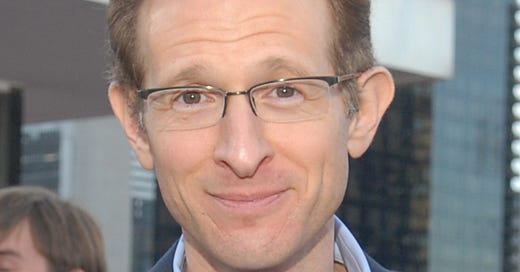



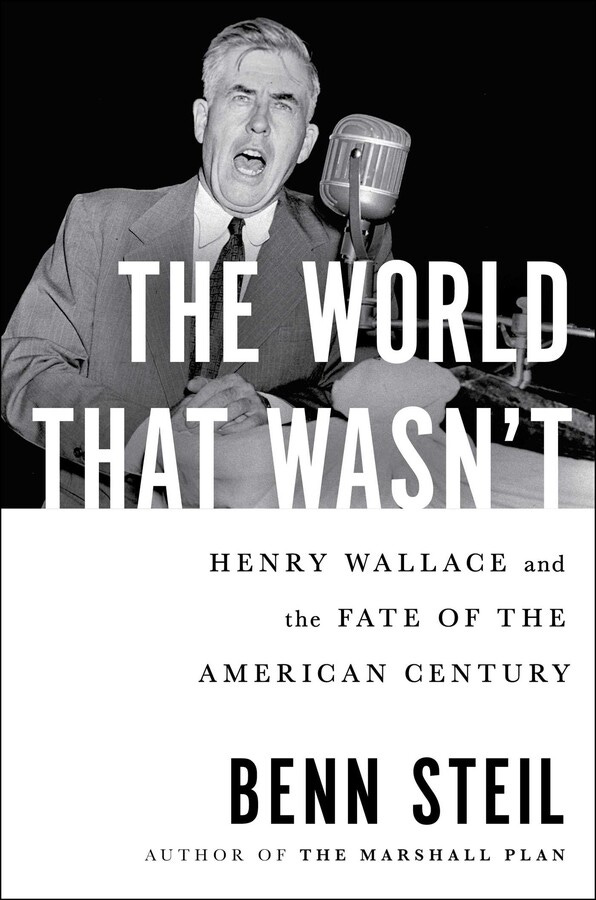


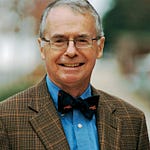

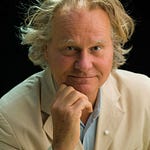



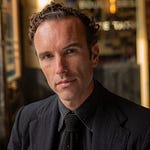
Share this post